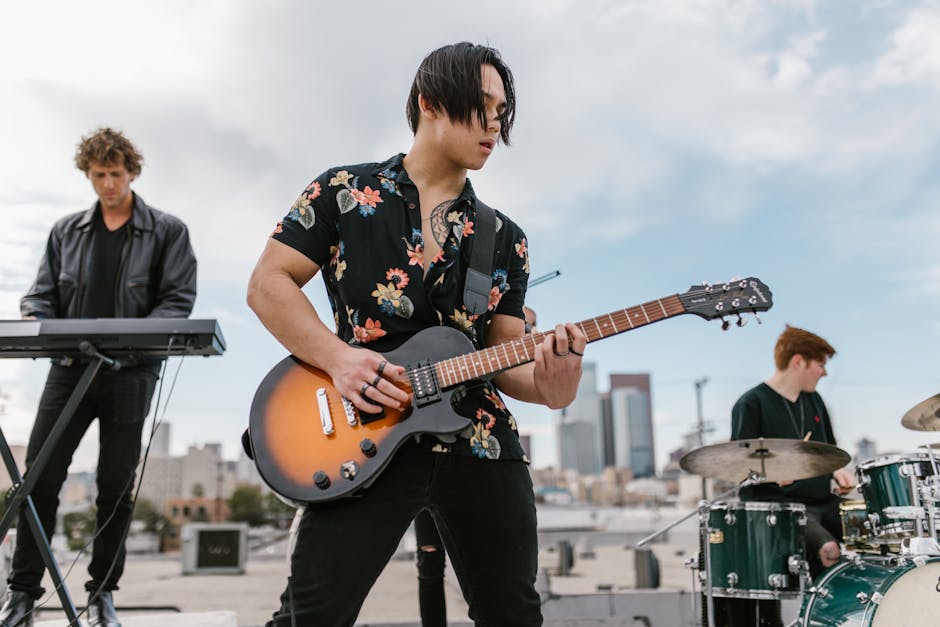Essential Tools for DIY Musicians to Grow Their Careers

Being a DIY musician is no small feat. It’s not just about making music; it’s about being your own manager, marketer, producer, and sometimes even accountant. While this might sound like a lot to handle, the good news is that there are plenty of tools out there that can make this balancing act much easier. Whether you're building your fanbase or recording your next big hit, having the right tools at your disposal is crucial for success. Let’s break down some essentials every DIY musician should consider.
1. Digital Audio Workstations (DAWs)
If you’re serious about making music, a good DAW is non-negotiable. A DAW allows you to record, edit, and produce music from your computer. The great thing is that there’s something for every budget and skill level.
Logic Pro X is one of the top picks for Mac users. It offers robust features that professional producers swear by but remains user-friendly enough for beginners to learn on. For Windows users, FL Studio has long been a favorite among electronic music producers thanks to its easy-to-navigate interface and powerful plugin support.
If you’re just starting out or don’t want to shell out cash upfront, there are free options too. GarageBand, which comes pre-installed on Macs, is surprisingly powerful for a free program and works great for musicians just getting into digital production. Ableton Live Lite is another solid free choice that provides a stripped-down version of its full DAW but still packs plenty of punch.
2. Distribution Platforms
Once you’ve recorded your masterpiece, how do you get it into people’s ears? That’s where digital distribution platforms come into play. With the rise of streaming services like Spotify and Apple Music, getting your music onto these platforms has become essential for reaching listeners worldwide.
DistroKid stands out as one of the most popular services among independent musicians. It offers unlimited uploads for a flat annual fee and gets your tracks onto all major streaming platforms. Another option worth considering is TuneCore, which operates on a pay-per-release model but also provides useful analytics on how your music is performing.
The key here is consistency, releasing singles regularly rather than waiting for an entire album can keep you in front of potential fans more often. Remember, with more visibility comes more opportunities for growth.
3. Social Media Management Tools
Social media isn’t just about selfies and memes, it’s an indispensable tool for building an audience as a musician. But managing multiple platforms like Instagram, TikTok, Twitter (or X), and Facebook can quickly become overwhelming.
This is where social media management tools come in handy. Hootsuite, for example, allows you to schedule posts in advance across multiple platforms from a single dashboard, giving you more time to focus on making music while staying consistent online.
For musicians who prefer a more visual-centric platform like Instagram or TikTok, Later is another tool worth checking out. Not only does it allow scheduling of posts, but it also helps with planning out an aesthetic feed, a subtle but impactful aspect of attracting new followers.
4. Email Marketing Platforms
While social media may seem like the best way to communicate with fans, don't underestimate the power of email marketing. Having direct access to someone’s inbox means that you won’t have to rely on algorithms or trends to stay in touch with your listeners.
Mailchimp is one of the most widely used email marketing tools out there and for good reason. With its free tier allowing up to 500 subscribers, it’s perfect for musicians who are just starting to build their fanbase. You can easily send newsletters announcing new releases, upcoming gigs, or even behind-the-scenes stories from the studio.
If you’re looking for something that feels more personal but still automated, check out ConvertKit. Originally designed for bloggers and creators, this platform has gained traction among musicians because it focuses on creating meaningful connections rather than just broadcasting announcements.
5. Crowdfunding Platforms
A DIY musician might not have a massive label backing them financially, but that doesn’t mean they’re without options when it comes to funding projects like albums or tours. Crowdfunding platforms have become lifelines for independent artists looking to raise money directly from their supporters.
Patreon is probably the most well-known name in this arena. Musicians can offer exclusive content such as early access to new songs or behind-the-scenes videos in exchange for monthly contributions from fans. It’s an excellent way to build a community around your work while maintaining a steady stream of income.
Kickstarter, meanwhile, works better for funding specific projects like an album release or a tour, offering fans incentives such as limited-edition merchandise or VIP experiences in exchange for pledges.
Take Control of Your Music Career with the Right Tools
The life of a DIY musician can be both exciting and demanding, but it doesn’t have to be overwhelming if you equip yourself with the right tools along the way. From creating top-quality tracks using affordable DAWs to building relationships with fans through email marketing platforms and social media tools, there’s never been a better time to take full control over every aspect of your career.
The key lies in identifying what works best for you at each stage of your journey as an artist and being willing to experiment until you find that sweet spot where creativity meets productivity!